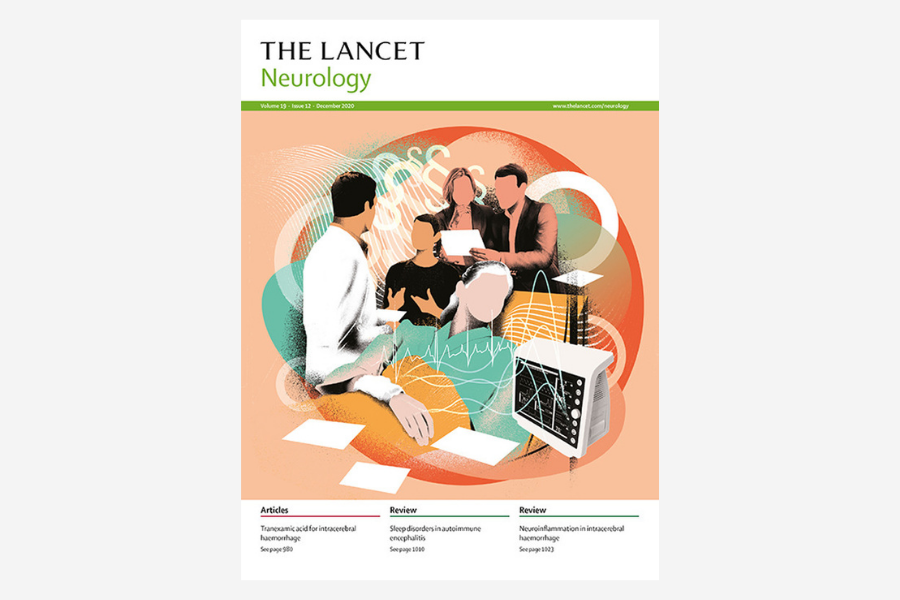
The Lancet Neurology
Fecha de publicación: December 2020
DOI: https://doi.org/10.1016/S1474-4422(20)30341-0
Autores: Amaia Muñoz-Lopetegi, Prof Francesc Graus, Prof Josep Dalmau, Prof Joan Santamaria
Background: Sleep disorders in people with autoimmune encephalitis have received little attention, probably overshadowed by the presence of other neurological and psychiatric symptoms in this group of conditions. However, sleep disorders are frequent, often severe, and usually persist beyond the acute disease stage, interfering with patients’ recovery and quality of life. Because autoimmune encephalitis can affect any brain network involved in sleep initiation and regulation, all types of sleep disorders can occur, with varying distinct associations, frequency, and intensity. Anti-IgLON5 and anti-NMDA receptor encephalitis exemplify two diseases in which sleep disorders are prominent. In anti-IgLON5 disease, sleep disorders were the core symptoms that led to the description of this disease, whereas in anti-NMDA receptor encephalitis, sleep disorders vary according to the disease stage along with other neuropsychiatric symptoms. Comprehensive, systematic, multicentre studies are needed to characterise sleep disorders and their mechanisms in autoimmune encephalitis.





